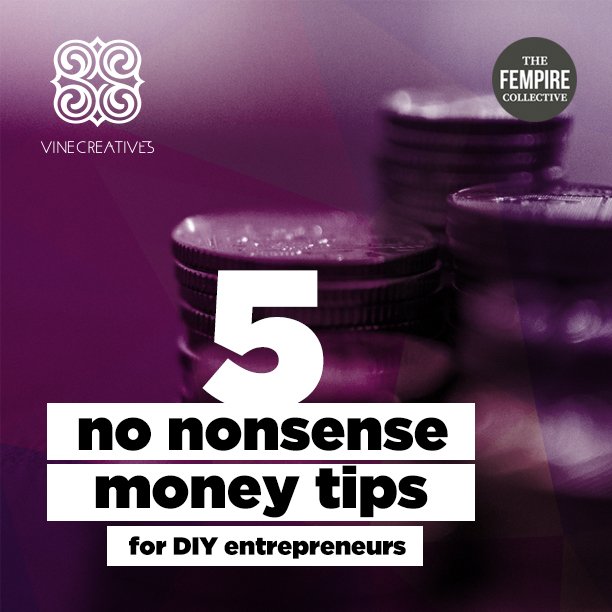
Over the past 5 years, we have seen many amazing businesses last less than a year and others which don’t even make it past their “launch” event. Why?
Many experts say that the number one reason why businesses fail, regardless of the background of the founder, is because they run out of money. This can be made avoidable to an extent by knowing the basics of business finances. This is especially true for creative business, products and/or services.
This mini guide was written for the ladies of The Fempire Collective (https://fempirecollective.com/), a collective of bright, ambitious, and creative women working towards a better, more inclusive, future. The empower their ladies with education on business with books, workshops, fairs, screenings and more.
This guide is for those of you who have just started your businesses or side hustles as do-it-yourself entrepreneurs.

1 - Build with budget
A budget is how much money you have to work with in order to achieve your business goals. At the most basic level, your business needs to be making more money than it is spending. You must start with your budget in order to control your costs.
The first step is to record how much money you have coming in; your net income. If you have a service based business you need to price your services by how long it takes you to do one hour of work.
Once you have your budget add a contingency of at least 10%. There are always hidden or unexpected costs to running a business and so if you have a bit of extra cash in your budget, anything unexpected is at least covered to a certain extent.
Only have very little left over? Try slimming your expenses, finding cheaper providers or removing unnecessary costs.

2 - Don't quit your day job just yet!
It’s quite popular nowadays to hate your day job and want to leave to pursue your dreams. Everyone wants to work for themselves. Intrinsically, there is nothing wrong with this.
However, while we do advocate for “just do it”, or “get started now” we do think it’s best to do so with wisdom.
It can take a business up to 3 years to turn a sizeable profit and from which the founders can then draw a salary.
Your 9-5 is your training ground. Keep your 9-5 as your main source of income and use it to fund your start-up. As passion alone doesn’t pay the bills!
If you do want to leave your job then set aside at least 6 months worth of salary so that you can live off this while you build your business. Ensure you can cover your day to day costs. Otherwise, you will very quickly slip into debt.
3 - Branding really does matter
Presentation and perception is very powerful
If someone offered you a dish that looked gross would you eat it? Even if they insisted that it was delicious? No? That’s exactly the same effect that poor branding has on your business. No matter how good it is, the first thing people see is the outward presentation.
Branding goes beyond just a nice logo but moves into positioning, what kind of clients you attract and how they treat and pay you. If you look and operate like a one-man band (even if you are) or look like the website was done by an amateur, this will be how people will treat you.
So invest in good quality branding. Even at the start.

4 - Don't try and do everything yourself!
This is another common trap we see many entrepreneurs fall into and it's more related to money than people first realise as well.
If you are not good at financial planning then you have two options: you can learn to be or you can get someone to help >you. If it’s not your strength, then get help.
It’s good to at least know the basics so that you won’t be taken for a ride with consultancy fees! Build your team and software list so that your business can be efficient.
5 - Know the lingo
Lingo is everywhere in every industry and it's no different in the business world. You don’t have to always speak it, but you do need to know it. It’s very important to be able to know and understand financial terms. It goes extremely far in solidifying your credibility as an entrepreneur. Learn the basics like cash-flow, net margin, profit and loss, forecasting and markup and wholesale and retail prices.
Lastly...
There are many, many resources out there that can help you with this part of the business. It can be overwhelming sorting through tons and tons of advice but being able to research is another valuable skill that you can add to your business arsenal, so it’s a good idea to learn it.
The best way to start is to look at first, how you consume information and second, what help exactly you need. Be it blog articles, TEDTalks, YouTube videos or podcasts and events.
For the more advanced, there are things like grants, angel investors, VCs, bursaries that are available, to fund your business. But getting money without knowing how to manage money in this way will do you no good. Knuckle down the basics and you can build from there.
Hope you found this micro guide helpful! If you would like the full guide, just drop us an email! :)
http://www.vinecreatives.com
https://www.instagram.com/vinecreatives/